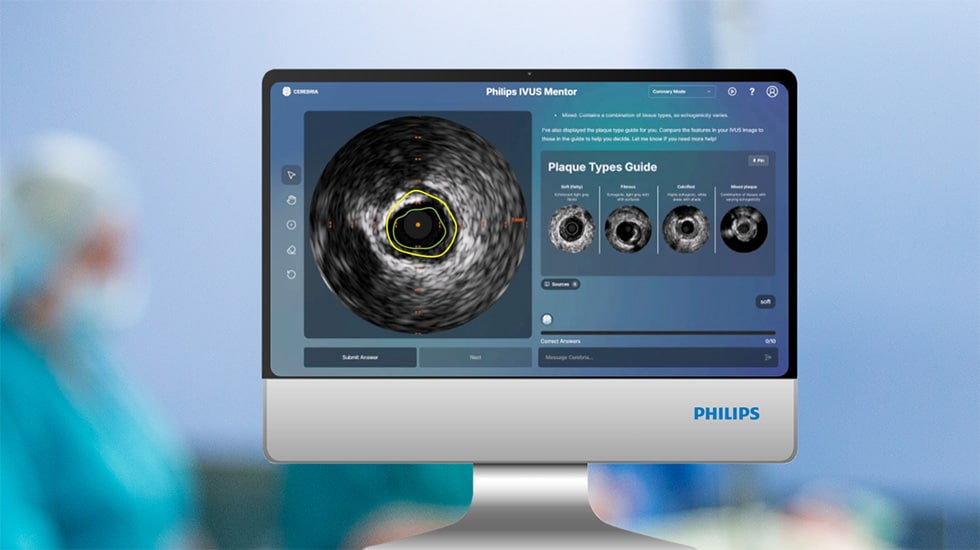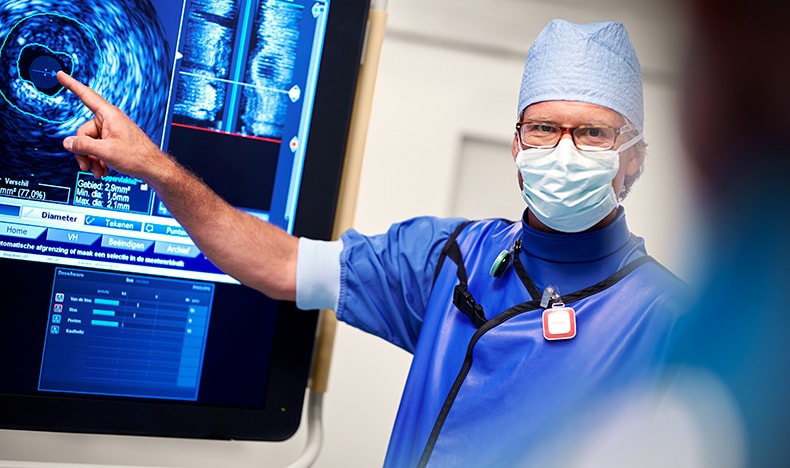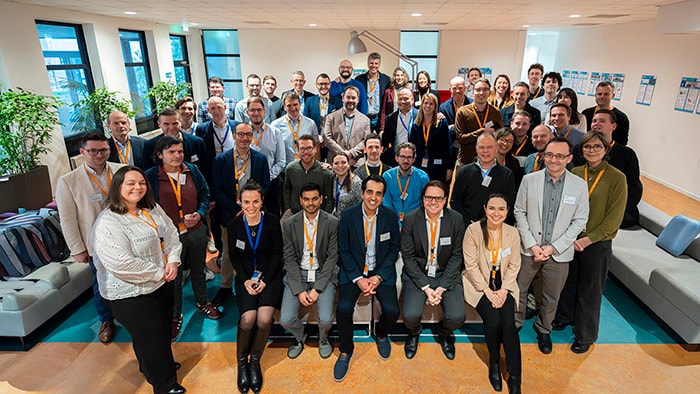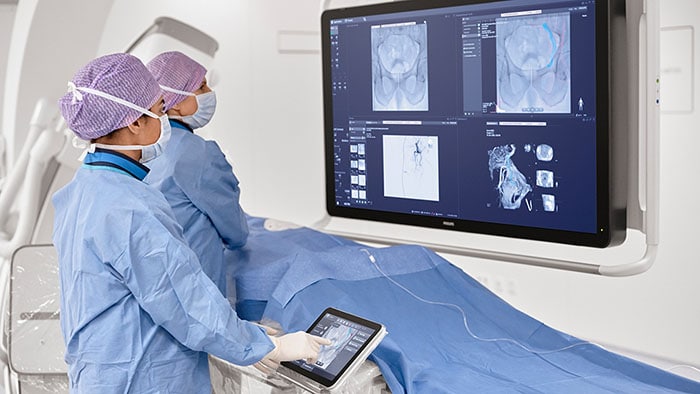AI-powered Philips IVUS Mentor expands access to interventional training worldwide
Oct 23, 2025 | 2 minute read
Developed with leading IVUS physicians, the adaptive learning platform uses AI to make image-guided therapy education more accessible to clinicians around the globe

Accelerating IVUS education through AI
At the Transcatheter Cardiovascular Therapeutics (TCT) 2025 conference in San Francisco, we are announcing the Philips IVUS Mentor, an AI-driven educational platform designed to accelerate clinician proficiency in intravascular ultrasound (IVUS) interpretation.
Developed in collaboration with Dr. Justin Davies, Interventional Cardiologist and CEO of Cerebria, and with input from leading IVUS experts, the platform combines Philips’ leadership in image-guided therapy with adaptive artificial intelligence. By offering structured, case-based, and multilingual training accessible anytime and anywhere, Philips is advancing equitable access to high-quality IVUS education worldwide.
Addressing the global IVUS learning gap
Despite strong guideline recommendations for IVUS use, adoption remains low. Research shows IVUS is used in only about 15–20% of percutaneous coronary interventions and 11.7% of peripheral vascular procedures [1]. Limited access to mentorship and the steep learning curve are key barriers to wider adoption.
The Philips IVUS Mentor addresses these challenges by providing scalable, AI-guided education that adapts to each learner’s experience and pace. The system mirrors how expert clinicians develop visual pattern recognition and decision-making confidence—helping learners build mastery faster and more consistently.
Through this collaboration, we’re helping more clinicians master image-guided therapy with the same rigor and confidence as hands-on lab experience. The Philips IVUS Mentor reinforces our commitment to advancing education that supports guideline-driven care and improved outcomes for patients worldwide.
Learning guided by evidence and expertise
The IVUS Mentor combines adaptive AI and expert-authored content to deliver personalized learning pathways. Its structured, case-based curriculum ensures consistency and supports clinicians in gaining confidence in IVUS interpretation.

Key educational benefits include:
Evidence underscores the value of IVUS-guided care. Studies show IVUS-guided PCI can reduce major adverse cardiac events by 30–50% compared to angiography alone [2]. In peripheral interventions, IVUS has been shown to change treatment strategy in up to 79% of arterial and 57% of venous cases [3].
“As interventional cardiologists, we know that IVUS can transform patient outcomes, but learning to interpret images confidently takes time. By integrating adaptive AI into the training process, Philips is helping clinicians bridge that gap more efficiently and consistently,” Dr. Justin Davies explains.
Available to clinicians worldwide
The Philips IVUS Mentor powered by Cerebria is designed exclusively for professional education and not for diagnostic or therapeutic use. The global launch begins October 26, 2025, with demonstrations at TCT 2025 and VIVA 2025.
Clinicians can experience the platform firsthand and apply for early-access registration during these events. The initiative marks another step in Philips’ ongoing effort to empower clinicians with meaningful, technology-enabled education that enhances care delivery and outcomes.
Advancing education, improving care
By combining artificial intelligence with expert-guided curriculum design, the Philips IVUS Mentor helps clinicians worldwide gain confidence in image-guided therapy. This innovation reflects Philips’ goals to bring advanced training tools closer to every healthcare professional and, ultimately, better outcomes to every patient.

Sources [1] Divakaran S, Parikh SA, Hawkins BM, et al. Temporal Trends, Practice Variation, and Associated Outcomes With IVUS Use During Peripheral Arterial Intervention. JACC Cardiovasc Interv. 2022;15(20):2080–2090.
[2] Hong S-J et al. Intravascular ultrasound–guided versus angiography-guided percutaneous coronary intervention: A systematic review and meta-analysis. Eur Heart J. 2022;43(32):3081–3092.
[3] Philips Healthcare. Peripheral Intravascular Ultrasound (IVUS). Royal Philips, 2024.








